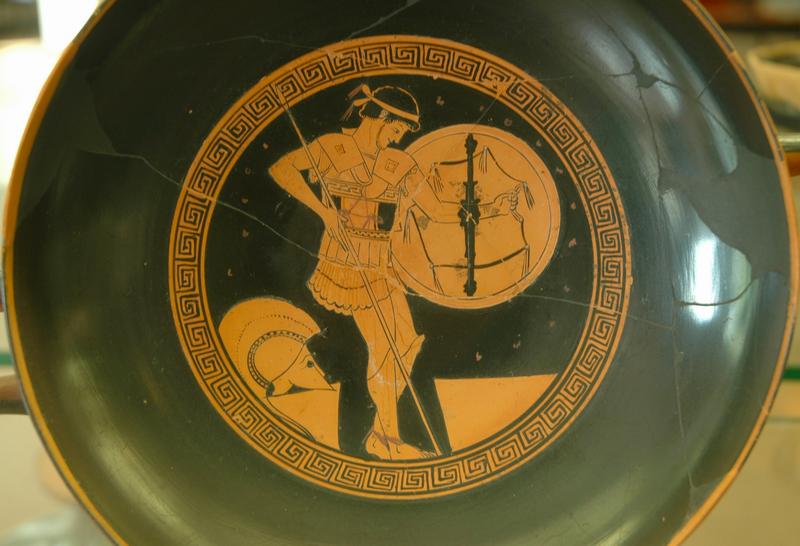Aigospotamoi (7)
Aigospotamoi: the final battle of the Peloponnesian War (431-404). In September 405, the Athenians were decisively defeated by the Spartans and lost their navy. As a result, the siege and fall of Athens became inevitable.
Battle 1: Tactical overview

TheSpartan tactic was fairly uncomplicated. The early capture of Lampsacus had offered the Spartans an excellent starting position. The city provided safety and was well stocked. At the same time, its location threatened the Athenian grain shipments from the Black Sea. With this in mind, Lysander could afford to await a favorable moment. Sooner or later, the Athenian navy would have to offer battle. He was well aware that Athens' treasury was running low. If he could just manage to defeat them at Aigospotamoi, chances were that Athens would not be able to build a new fleet.
This forced the Athenians to a hazardous tactic. The Athenian admirals had decided to set up camp directly opposite the Spartan stronghold of Lampsacus. As noted above, this location was merely a beach, without a nearby harbor or town to provide the troops with the necessary provisions. The nearest place where provisions could be acquired, was Sestos, a city approximately twenty kilometers southwest of Aigospotamoi. This meant that the Athenians would have to split up their fleet if they wanted to obtain provisions. But by doing so, they would severely weaken their position. Next to this there was the danger that soldiers might themselves go searching for food and supplies, if shortage was feared - breaking discipline.
The question arises why the Athenians positioned their fleet so unfavorably. The deciding factor probably was the strategic importance of the site. The emptying Athenian treasury, the defecting allies and the Spartan threat all demanded a quick victory. And because the site lay directly opposite Lampsacus, the Spartans would have no choice but to confront the Athenian fleet before they could continue the war. According to Strauss there is also a political explanation to be given for the choice of Aigospotamoi - and for the lack of incentive to move to a more suitable location for that matter. To be precise, the execution of the admirals after the battle of Arginusae was still on every man's mind, and none of the admirals wanted to be accused of carelessness or be held responsible for any possible Spartan plundering expedition in the region.note